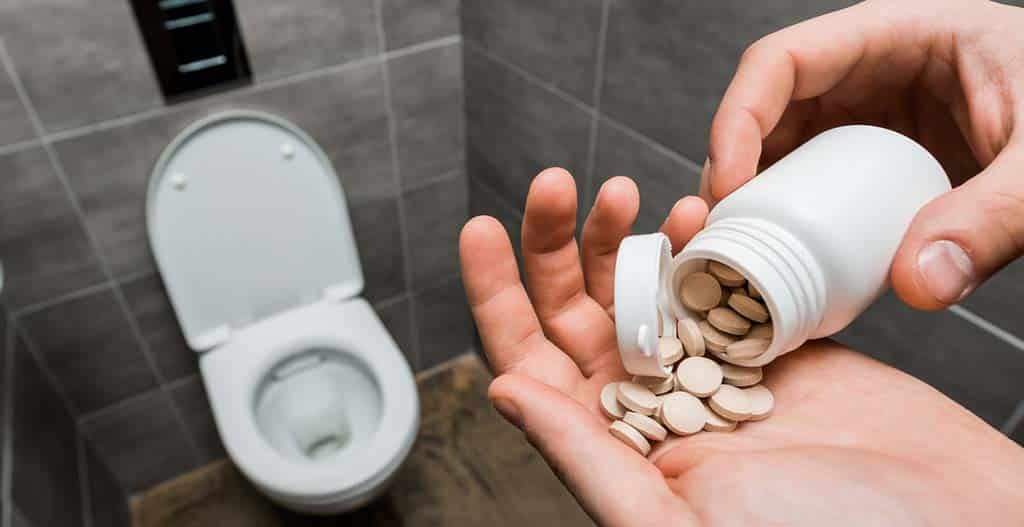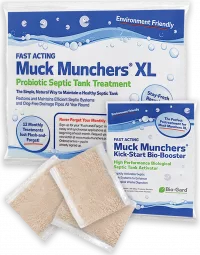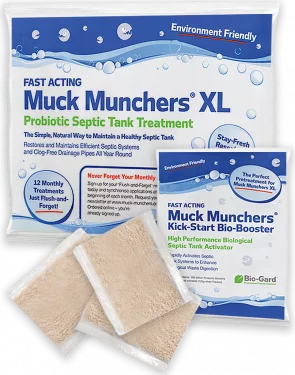Your Septic System and Prescribed Medications?
Have you wondered about your septic system and prescribed medications? At some point or another, we all get ill and may need the assistance of medications to help us get better. In the case of a long-term illness, we may also need medicines and drugs to manage our symptoms for improved quality of life.
Many customers have asked about a medication’s impact on the efficiency of their septic systems. Hence the reason for this article where we will investigate the impact prescribed medications can have on the health of a septic tank. Before we delve into the impact that medications may have on your septic system, let us assure you that your health is far more important than the health of your septic system.

Do Pharmaceutical Meds Impact Septic Systems?
Septic systems rely on natural bacteria to help break down and digest the organic matter in your tank. Improper disposal of prescription medications, such as flushing them down the toilet or a sink, can lead to their entry into your septic tank with the potential to harm the healthy bacteria responsible for breaking down the organic waste.
Furthermore, certain medications may also harm the environment after entering our waterways. While you can’t control the medication that enters your tank from digestion, it is always best to properly dispose of medications that are out-of-date or that you no longer need rather than flushing them into your system. In the UK, it is recommended that we take back old medications to a local pharmacy to dispose of.
Many different types of medicines can potentially harm the bacteria in a septic system, but some common examples include:
- Antibiotics
- Painkillers (such as ibuprofen)
- Chemotherapy drugs
- Antidepressants
- Some heart medications
Can Prescribed Medications Kill the Friendly Bacteria in Your Septic Tank?
Yes – some types of commonly prescribed medications may kill bacteria in your septic tank. You need to ensure you have a healthy supply of bacteria in your septic system so that the waste you flush gradually breaks down naturally over time.
Medications can kill bacteria in a septic system in a few different ways. Some, such as antibiotics, are specifically designed to kill or inhibit the growth of bacteria. When present in a septic system, they can break down the ecosystem and prevent waste from effectively breaking down.
Some medications may also change the pH levels of wastewater, which can make the environment inhospitable for certain types of bacteria.
It’s important to note that not all medications will have the same impact on septic systems, and the effect of a specific medication may also vary depending on the dosage and how often it is used. In fact, if your septic tank is only used by one or two people taking occasional antibiotics in a household, it’s unlikely there will be much of a dramatic negative impact.
What Impact Do Chemotherapy Drugs Have on Your Septic Tank?
Chemotherapy drugs, much like antibiotics, can seriously impair the health of your septic system. Many of these drugs, while useful in helping to treat tumours, will kill the bacteria in your tank.
If you’re taking chemotherapy drugs, it’s vital to stay the course – never put your septic tank first. What you’ll need to do is slightly adjust how you manage your tank. For example, if you live in the UK and are not already adding bacteria to your septic tank, a monthly dose flushed into your system, such as Muck Munchers XL at double the normal dosage rate will help to boost and maintain the levels of healthy bacteria in your tank.
It’s then a good idea to safely pump your septic system only at the end of your medicinal treatment course.
Is it Advisable to Have Your Septic Tank Regularly Emptied if Taking Prescribed Medication?
It’s not always necessary to keep your septic tank pumped more frequently. The exception, as mentioned, may be chemotherapy drugs, although we’d advise only pumping at the end of a course.
When you have your tank pumped, you remove virtually all the bacteria in the tank, and as we know, tanks don’t need pumping out that regularly, normally every year, while Muck Munchers customers will go much longer! The important point, especially if you are using medications, is to repopulate the helpful waste digesting bacteria.
You can improve and enhance your tank’s performance by regularly adding bacteria to your system, especially following a pump out. This will help to restore the rate of organic waste digestion in your system while improving your overall performance, including the emission of foul smells, back-ups in drains and puddles of water or lush grass near your soakaway – all signs of an ineffective septic system.
Just keep in mind that it is highly unlikely that a course of antibiotics or occasional ibuprofen will create the need for a pump-out. Unless you regularly flush medicine or are on an extended course, there’s little for you to worry about.
What Can You Add to Your Tank to Support Friendly Bacteria When Taking Prescribed Medication?
The best way to support friendly bacteria is to add more microbes. Muck Munchers will help you to keep your septic bacteria population at an optimum level, working hard to break down the waste that enters your system.

3 Tips to Support Your Septic System and Prescription Medications
Choose Chemical-Free Cleaners
Where possible, avoid using most chemical-based toilet and sink cleaners that will also destroy your septic tank bacteria too. It’s understandable that you will want to clean your sanitary ware with some form of product, but just be ready to swap out some of your traditional bleach for one that’s described as ‘Safe for Septic Tanks’.
Try swapping cleaners that contain chemicals for bacteria-friendly options, such as Eco Toilet or washing-up liquid. There are many different brands and products online and in supermarkets that can help to protect your bacteria for longer.
Eco cleaners and sanitisers often clean deeper than many people expect while helping protect bacteria found further down in the septic system. Try a couple of substitutions for your current cleaning products with some eco-friendly cleaning products and notice the difference it makes. We’d not just recommend you swap out these cleaners if you’re taking prescribed medicine but in general. Ultimately, you’ll save on having to pump out your tank unnecessarily.
Avoid Flushing Non-Natural Waste
You should also avoid flushing anything that isn’t natural waste. Adding baby wipes to medicinal waste, for example, will only clog up your septic system. Stick to what we refer to as the three P’s – pee, poo, and paper. Standard toilet paper is fine to flush as it should degrade easily once it reaches the tank.
Stick to Your Maintenance Plan
As the owner of a septic tank system, you should always have a maintenance plan in place. This means checking the tank levels regularly and contacting your installer or specialist for occasional checkups if you have a complex packages sewage treatment plant. This isn’t just worthwhile because the medicine can react poorly with waste, but because by caring for your septic system, it will care for you.
A maintenance plan doesn’t have to be over the top, nor should you have to keep checking your tank every week. We simply advise you to try and check your tank more regularly, say every 1-2 months, when taking medicines that might reduce the bacterial population and lead to problems. As part of your maintenance plan, of course, do introduce Muck Munchers to keep your tank topped up with microbes to ensure optimum waste digestion, both in the tank and soakaway drainfield too.










